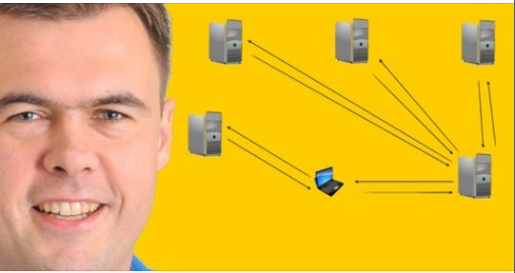Published 11/2024
Created by Moiz moiz
MP4 | Video: h264, 1280×720 | Audio: AAC, 44.1 KHz, 2 Ch
Genre: eLearning | Language: English | Duration: 52 Lectures ( 13h 27m ) | Size: 6.83 GB
Learn to optimize your network
What you’ll learn
Students
Network Engineers
IT Techs
IT Support Tech
Requirements
Basic Networking
Description
The IT industry is constantly changing and evolving. As time goes on, there is an ever-increasing amount of technologies putting a strain on the network. New paradigms are formed as others are being shifted away from. New advances are being developed and adopted within the networking realm. These advances are being created to provide faster innovation and the ability to adopt relevant technologies in a simplified way. This requires the need for more intelligence and the capability to leverage the data from connected and distributed environments such as the campus, branch, data center, and wide area network (WAN). Doing so allows for the use of data in interesting and more powerful ways than ever seen in the past. Some of the advances driving these outcomes are the following: Artificial intelligence (AI) Machine learning (ML)Cloud servicesVirtualizationInternet of Things (IoT)Shifting from a network-centric model to a business intent-based WAN network represents a significant change. This new approach simplifies application deployment and management by focusing on application services rather than network topology. However, it requires a mindset shift for network operations staff, who must support applications that consume large amounts of bandwidth and are sensitive to jitter, loss, and delay. Cloud-based applications like ERP and CRM increase bandwidth demands, making it costly and difficult to provision new services with traditional connectivity options. Businesses often rely on service providers for MPLS L3VPN, which can be slow and expensive to adapt to new application delivery methods like cloud and SaaS.This is why the concept of hybrid WAN was originated. Hybrid WANs provide businesses with alternative paths for applications across the WAN environment, giving them complete control over routing and application performance. By using various types of links like broadband Internet, L2VPN, wireless, and 4G/LTE, businesses achieve transport independence. This allows for secure VPN tunnels over any link, ensuring deterministic routing and application performance.Cisco Software-Defined WAN (SD-WAN) uses a transport-independent fabric technology to connect remote locations via an overlay network. This overlay tunnels traffic over any transport type, enabling flexible routing of applications regardless of the underlying circuit. This concept, known as transport independence, ensures that every remote site is just a single hop away from another, improving application latency and dynamic communication scenarios like voice or video. The primary benefit of Cisco SD-WAN is its ability to use lower-cost, flexible commodity circuits instead of expensive, static bandwidth options. This reduces costs and simplifies network operations, providing seamless mobility and better user experience. However, upgrading bandwidths through service providers can be costly & time consuming, often requiring significant changes to the physical circuit.
Who this course is for
This is for the people who are planning to get certified in Cisco 300-415 certification & also for everyone who is keen to learn SD-WAN technology.
https://anonymz.com/?https://www.udemy.com/course/sysable-300-415/










